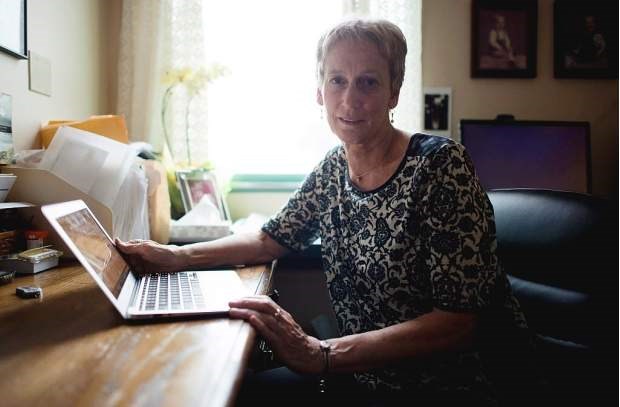A recent decision by the B.C. College of Physicians and Surgeons struck me as unusually courageous, coming as it did from an institution not known for nettle-grasping.
The issue had to do with a Vancouver physician, Dr. Ellen Wiebe, who provided medical assistance in dying (known as MAID) to a nursing-home resident.
MAID is legal in Canada, following a Supreme Court ruling in 2016. But the circumstances in which it can be provided remain cloudy at best.
The problem on this occasion was that the facility in question — the Louis Brier Home and Hospital — refuses to allow MAID to be carried out on the premises. That meant if the resident, Barry Hyman, wished to go ahead, he would have to be transported to a facility that does permit the procedure.
Hyman certainly did wish to proceed — the 83-year-old had lung cancer and was suffering the effects of a stroke. His family backed him all the way.
And here a second act of courage occurred. Wiebe decided to respect her patient’s wishes, despite the nursing home’s policy. She had been assured by a lawyer with the College that she would face no professional consequences if she went ahead.
That took guts. The college might support her, but will our courts?
I don’t want to argue the merits, morally or medically, of MAID. I’m in favour. Others are not.
The broader question is whether religious beliefs provide due cause to withhold a legally sanctioned medical procedure. The Louis Brier nursing home is Jewish, and argues its constitutional right to freedom of religion entitles it to take this course.
A different, but in some respects parallel, case arose in Ontario two years ago. That province’s College of Physicians and Surgeons ruled that doctors with religious objections about certain procedures were obliged to refer patients to a physician who would provide service.
This led three professional organizations, among them the Christian Medical and Dental Society, to sue the College. First, they argued that forcing physicians to refer patients for procedures they opposed was an unreasonable imposition on faith-based choice. Second, they also claimed there was no evidence that refusing a referral limited patient access.
The second objection is laughable on its face. But the first is not. Without question, this policy is an imposition on the conscience of physicians.
Nevertheless, the suit was dismissed in Ontario’s divisional court, on the grounds that while matters of conscience are protected in the Charter, that is not the end of the issue. The rights of patients must also be considered.
In effect, we have two competing claims, and a reasonable balance must be found. The court ruled that the college had arrived at such a balance, and earlier this year Ontario’s court of appeal agreed.
The two cases are not identical. The ruling guidance in the Ontario decision was that patients must be given an alternative if their physician declines to provide a service.
We have an example of a sort here in B.C. St. Paul’s Hospital in Vancouver, which is a Catholic facility and refuses to perform abortions. This might raise questions if other options did not exist.
But in fact, it is widely known that other facilities in the vicinity do offer the procedure. That entitles St. Paul’s to follow its religious beliefs.
The issue at Louis Brier was somewhat different. The college took the view that forcing a sick and elderly resident to leave his home and die in a strange bed was an unreasonable imposition.
The question was not whether an alternate facility was available. The question was whether religious principle suffices to put a dying old man through such a traumatic experience.
The college believed the nursing home’s policy is not a fair balance of competing interests, and I have to say I think the college and Wiebe were right.



